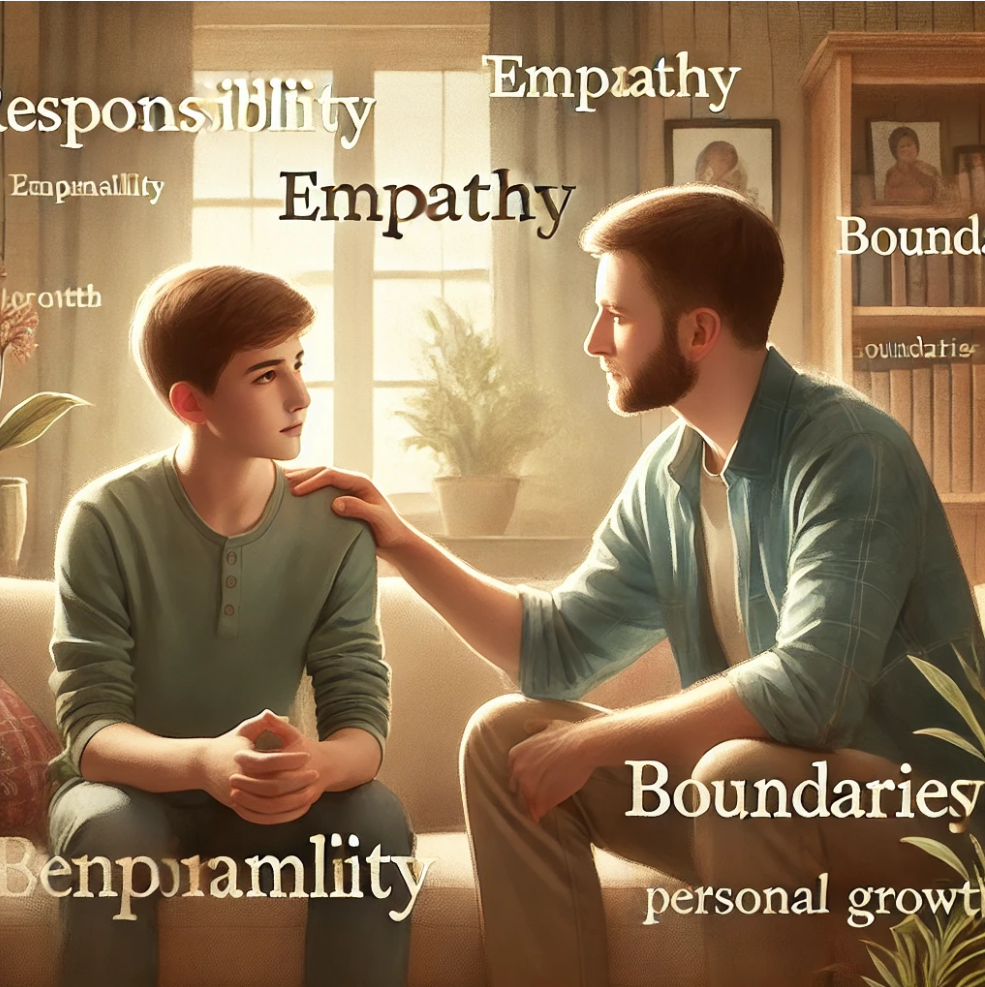How Teens Can Manipulate Their Parents and Why They May Do So

Teenagers are in a developmental stage marked by significant emotional, cognitive, and social growth. As they strive for independence, teens may sometimes use manipulation as a tool to influence their parents and achieve their desires. This article explores common manipulative tactics employed by teens, the psychological reasons behind such behaviors, and strategies parents can use to recognize and address manipulation.
Understanding Manipulative Behaviors
Manipulation is a way of influencing or controlling another person’s actions, emotions, or decisions, often through subtle or indirect means. Teens may manipulate their parents intentionally or unconsciously, employing tactics that exploit parental emotions or expectations.
Some common methods of manipulation include:
- Guilt-Tripping: Teens may remind parents of sacrifices made for them or accuse them of being unfair to induce guilt and compliance.
- Playing Parents Against Each Other: Also known as triangulation, this involves giving conflicting information to parents to gain an advantage.
- Emotional Outbursts: Using anger, tears, or withdrawal to wear down parental resistance.
- Feigning Helplessness: Pretending to be unable to complete tasks or solve problems independently to garner assistance or attention.
- Promises and Bargaining: Offering to behave better or fulfill obligations in the future in exchange for immediate rewards.
Why Teens Manipulate Their Parents
Manipulative behavior in teenagers often stems from a combination of psychological and environmental factors. The motivations behind such actions can be complex and multifaceted, including:
- Desire for Independence
Adolescence is a time of seeking autonomy. Teens may manipulate parents to gain freedoms they perceive as a step toward adulthood, such as staying out later or having fewer rules. Cognitive Development: During adolescence, the prefrontal cortex (responsible for decision-making and impulse control) is still developing. This immaturity can lead to impulsive decisions, including manipulative behaviors (Blakemore, 2018). - Testing Boundaries
Teens often test limits to determine how much control they can exert in family dynamics. Manipulation allows them to assess which behaviors lead to favorable outcomes. - Emotional Needs
Manipulation may signal unmet emotional needs, such as a desire for attention, affection, or validation. Teens struggling with self-esteem or feelings of neglect may resort to manipulative tactics to secure parental involvement. - Avoidance of Consequences
By deflecting blame or appealing to emotions, teens can avoid facing the repercussions of their actions, such as punishment or accountability. - Peer Influence
Social dynamics and peer pressure may drive teens to manipulate parents to obtain material goods or freedoms that align with peer group norms.
Recognizing and Addressing Manipulation
Parents can mitigate manipulation by cultivating awareness and adopting strategies that foster healthy communication and boundaries.
- Recognize Patterns
Identifying recurring manipulative behaviors is crucial. Parents should pay attention to tactics like guilt-tripping or emotional outbursts and consider whether their responses reinforce these behaviors. - Set Clear Boundaries
Establishing and consistently enforcing boundaries helps teens understand acceptable behaviors. Clear rules reduce ambiguity, minimizing opportunities for manipulation. - Encourage Open Communication
Teens may manipulate because they feel their needs or opinions are not heard. Creating a safe space for honest conversations fosters trust and reduces the likelihood of deceptive tactics. - Model Assertive Behavior
Parents can demonstrate assertiveness by responding calmly and firmly to manipulation. Refraining from emotional reactions helps de-escalate situations. - Teach Emotional Regulation
Supporting teens in managing their emotions equips them with healthier ways to express their needs and frustrations without resorting to manipulation. - Seek Professional Support
If manipulation stems from deeper issues, such as anxiety or trauma, consulting a therapist can provide valuable insights and interventions.
Teen manipulation is often a natural byproduct of adolescence, reflecting their developmental quest for independence and self-expression. While such behavior can challenge parental authority, it also offers opportunities to strengthen family relationships through improved communication and boundary-setting. By understanding the reasons behind manipulative actions and addressing them constructively, parents can guide their teens toward healthier interpersonal skills.

This article was written by John S. Collier, MSW, LCSW. Mr. Collier has over 25 years of experience in the social work field. He currently serves as the executive director and outpatient therapist for Southeast Kentucky Behavior Heath, LLC based out of London Kentucky. He may be reached by phone at (606) 657-0532 extension 101 or by email at john@sekybh.com.
References
- Blakemore, S.-J. (2018). Inventing Ourselves: The Secret Life of the Teenage Brain. PublicAffairs.
- Steinberg, L. (2014). Age of Opportunity: Lessons from the New Science of Adolescence. Houghton Mifflin Harcourt.
- Grolnick, W. S., & Seal, K. (2020). Parenting Practices that Promote Intrinsic Motivation in Adolescents. Journal of Adolescence and Youth Development, 42(3), 295–310.
- American Psychological Association. (2020). Understanding Adolescents: The Importance of Brain Development. Retrieved from www.apa.org






